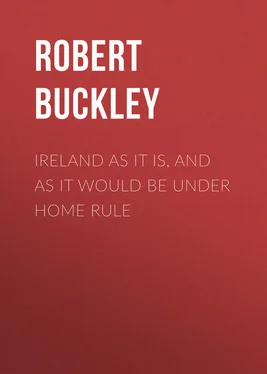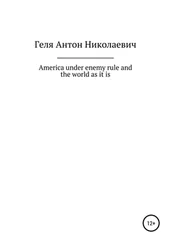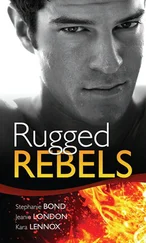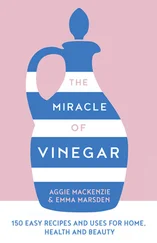Robert Buckley - Ireland as It Is, and as It Would Be Under Home Rule
Здесь есть возможность читать онлайн «Robert Buckley - Ireland as It Is, and as It Would Be Under Home Rule» — ознакомительный отрывок электронной книги совершенно бесплатно, а после прочтения отрывка купить полную версию. В некоторых случаях можно слушать аудио, скачать через торрент в формате fb2 и присутствует краткое содержание. ISBN: , Жанр: foreign_antique, foreign_prose, на английском языке. Описание произведения, (предисловие) а так же отзывы посетителей доступны на портале библиотеки ЛибКат.
- Название:Ireland as It Is, and as It Would Be Under Home Rule
- Автор:
- Жанр:
- Год:неизвестен
- ISBN:http://www.gutenberg.org/ebooks/29710
- Рейтинг книги:5 / 5. Голосов: 1
-
Избранное:Добавить в избранное
- Отзывы:
-
Ваша оценка:
- 100
- 1
- 2
- 3
- 4
- 5
Ireland as It Is, and as It Would Be Under Home Rule: краткое содержание, описание и аннотация
Предлагаем к чтению аннотацию, описание, краткое содержание или предисловие (зависит от того, что написал сам автор книги «Ireland as It Is, and as It Would Be Under Home Rule»). Если вы не нашли необходимую информацию о книге — напишите в комментариях, мы постараемся отыскать её.
Ireland as It Is, and as It Would Be Under Home Rule — читать онлайн ознакомительный отрывок
Ниже представлен текст книги, разбитый по страницам. Система сохранения места последней прочитанной страницы, позволяет с удобством читать онлайн бесплатно книгу «Ireland as It Is, and as It Would Be Under Home Rule», без необходимости каждый раз заново искать на чём Вы остановились. Поставьте закладку, и сможете в любой момент перейти на страницу, на которой закончили чтение.
Интервал:
Закладка:
"Excuse me, Sir. There's one thing I'd like to see if ye have it. Like you, I am a pathriotic Irishman, and take deloight in relics appertaining to the histhory of me counthry. Tell me now, have ye the horsewhip, the thunderin' big horsewhip, that young McDermot, of Thrinity College, used when he administhered condign punishment to Tim Healy? Have ye that, now?"
The County Clare man was completely knocked out. He discontinued the recital of his catalogue, and surveyed the scenery in dignified silence. His own friends chuckled. This was the most unkindest cut of all. Irishmen love to see a splendid knockdown blow. They are full of fight, and their spirit must have vent. They fight for fun, for love, for anything, for nothing, with words, with blows, with tongues, with blackthorns, anywhere, anyhow, only let them fight. Remove Mr. Bull, they will fight each other. Heaven help the right when nobody stands by to see fair play!
A Mr. Magrath, of Killmallock, was inclined to take a jocose view of the situation. "Faix, the English could never govern Ireland, an' small blame to thim for that same. Did ye see the Divil's Bit Mountains as ye came down from Dublin? Ye did? Av coorse, ye couldn't help but see them. Did ye see the big bite he tuk out o' the range – ye can see the marks o' the divil's own teeth, an' the very shape of his gums, divil sweep him! Shure, I seen it meself whin I wint to the Curragh races wid Barney Maloney; an' by the same token, 'twas Barney axplained it to me. Didn't the divil take his bite, an' then didn't he dhrop it on the plain out there forninst ye, the big lump they call the rock iv Cashel? Av coorse he did. An' if the divil himself found Ireland too hard a nut to crack, how can the English expect to manage us? Anyway, 'tis too big a mouthful for Misther Bull." One gentleman stood at his shop door, and having looked carefully around, said, "Ye niver know who ye're spakin' wid, an' ye niver know who's spyin' ye. Ah, this is a terrible counthry since we all got upset wid this Home Rule question. Did ye hear of Sadleir, of Tipperary? Ye didn't? He was a savin', sthrivin' man, an' he married a woman wid money. He had a foine shop, wid ploughs, an' sickles, an' spades for the whole counthry round. 'Twas a grand business he had, an' he made a powerful dale o' money. He was a quiet man, an' niver wint to the whiskey shops, where the boys they would be quarrellin' an' knockin' hell out iv each other. He introduced a timprance lecturer that towld the boys the poteen was pizenin' thim, an' 'twas wather they must dhrink. Ha! Ha! Will I tell ye what owld Sheela Maguire said to the timprance man?"
I admitted a delirious delight in discursive digression.
"The timprance man had a wondherful glass that made iverything a thousand million times as big. What's this he called it? Ye're right, 'twas a my-cross-scrope; ye hit it to a pop; bedad 'tis yerself has the larnin.' An' the people looked through it at the wather he put in a glass, an' they seen the wather all swimmin' wid snakes an' scorpions; 'twas enough to terrify the mortal sowl out o' ye. An' so Sheela looked in an' saw them. An' the man put in the wather a good dhrop o' whiskey, an' he says, says he, 'Now ye'll see the effect on animal life,' says he. An' Sheela looked in again, an' she seen the snakes all doubled up, an' kilt, an' murthered an' says Sheela, says she: —
"'May the divil fly away wid me,' says she, 'if I ever touch wather again till I first put in whiskey to kill them fellows!'
"'Twas poor Sadleir, of Tipperary town, brought the man down. Sadleir must howld land; nothin' less would sarve him, an' he tuk from Smith-Barry a big houldin', an' paid the out-going tenant five thousand pounds for his interest. Whin the throubles began he refused to join the Land League, by raison that he'd put all his money in the land. They sent him terrible letthers wid skulls an' guns, an' coffins, an' they said Will ye join? An' he said No, once. They smashed ivery pane o' glass in his house, an' they said Will ye join? An' he said No, twice. They bate his servants next, an' said Will ye join? An' he said No, three times. They threw explosives into the house, an' said Will ye join? An' he broke down. He was afeard for his life. He wint in wid the rest, an' refused to pay rint', an' iv coorse he got evicted, an' lost his five thousand pounds he put into the farm, an' then he lost his business, an' before long he died with a broken heart. An' where did he die? Just in the workhouse. 'Twas all thro' William O'Brien, the great frind iv Oireland, that this happened. An' if O'Brien an' his frinds got into power, why wouldn't it happen again? But we're afeard to breathe almost in this unfortunate counthry, God help us!"
Amid the varying opinions of the Irish people there is one point on which they are unanimous. They have no confidence in their present leaders, whom they freely accuse of blackguardism, lying, and flagrant dishonesty. Business men, although Home Rulers, agree that the destinies of the country should not be trusted to either or any of the jarring factions, which like unclean birds of evil omen hover darkling around, already disputing with horrid dissonance possession of the carcase on which they hope to batten. At the Station Hotel, Limerick Junction, a warm Nationalist said to me, "The country will be ruined with those blackguards. We have a right to Home Rule, an abstract right to manage our own affairs, and I believe in the principle. But I want such men as Andrew Jameson, or Jonathan Hogg, or that other Quaker, Pym, the big draper. There we have honourable gentlemen, whom we or the English alike might trust, either as to ability or integrity. We might place ourselves in the hands of such men and close our eyes with perfect confidence. Our misfortune is that our men, as a whole, are a long way below par. They inspire no confidence, they carry no weight, and nobody has any respect for them." Here my friend mentioned names, and spoke of an Irish M.P.'s conduct at Sligo. I give his story exactly as I heard it, premising that my informant's tout ensemble was satisfactory, and that he assured me I might rely on his words: – "At the Imperial Hotel a discussion arose – a merely political discussion – and blows were exchanged, the 'honourable gentleman' and others rolling about the floor like so many savage bull dogs in a regular rough-and-tumble fight. The poor 'boots' got his face badly bruised, and for some days went about in mourning. I see that this same member is bringing in a Bill in the House of Commons, and I read it through with great interest, because I remembered the row, which was hushed up, and never appeared in the papers. Imagine any Irishman, with any respect either for himself or his country, trusting either to a parcel of fellows like that."
My friend spoke more moderately of the objectionable Irish M.P.'s than they do of each other, but his opinions were obviously strong enough for anything. The attitude of the Freeman's Journal moved him to contempt, and its abject subjection to the priesthood excited his disgust. He said, waving the despised sheet with indignity – "We have no paper now. We lost all when we lost Parnell. He was a Protestant, and could carry the English people, and with all his faults he had the training of a gentleman. Look at the low-bred animals that represent us now. Look at Blank-Blanky and his whole boiling. I swear I am ashamed to look an Englishman in the face. The very thought of the Irish members makes me puke."
The mention of Mr. Jonathan Hogg reminds me that this eminent Dubliner submitted to me a point which I do not remember to have seen in print. Said Mr. Hogg: "When the Irish Legislature has become an accomplished fact, which is extremely improbable, the land will be divided and sub-divided until the separate holdings will yield incomes below the amount required for the payment of income-tax. The effect of this will be that a large number of incomes now paying tax will disappear, each leaving a number of small incomes paying no tax, so that a larger tax must be levied on the remaining incomes to meet the deficiency. Then the large manufacturers who can move away will certainly do so, and the country will suffer severely. Employment will be scarce or altogether lacking, and the people will go to England, by their competition lowering the rate of wage." The mention of Mr. Andrew Jameson reminds me of his opinion re Customs. He said to me "The bill nominally deprecates Separation, and yet proposes to establish a Custom House between the two countries, making Ireland a foreign country at once." Mr. John Jameson, who was present along with Mr. Arundel, the business manager of the great J.J. concern, then expressed his fears anent the practicability of Customs' collections on the Irish coast. He said, "We have 1,300 coastguards at present, and this force is ample when backed by the Royal Irish Constabulary, marching and patrolling in the interior. But when the constabulary are no longer engaged in the direct protection of British interests the little force of thirteen hundred coastguards must prove quite insufficient, and I doubt if even thirteen thousand would prove an adequate force. The Irish people will have no interest in protecting the British Government. Their interest will be exactly the other way. Grave difficulties attend the proposition having regard to the Customs duties between the two countries." Another eminent authority then present referred to the encouragement which the Act would give to the enterprising smuggler, and thought that a small fleet of American steamers, smart built, fast little boats, would instantly spring into existence to carry on a splendidly paying trade – a trade, too, having untold fascination for the Yankees, while the average Irishman, as everybody knows, is a smuggler by nature, disposition, heredity, and divine right. It was also pointed out that, whereas huge quantities of spirits now pass to Ireland through the ports of Bristol and London, under the new dispensation Irish merchants would order direct, which would inflict loss on England. The details of this loss were fully explained, but I omit them for the reason that experts will understand, while lay readers may safely accept a statement uttered in the presence of the two Jamesons and receiving their assent.
Читать дальшеИнтервал:
Закладка:
Похожие книги на «Ireland as It Is, and as It Would Be Under Home Rule»
Представляем Вашему вниманию похожие книги на «Ireland as It Is, and as It Would Be Under Home Rule» списком для выбора. Мы отобрали схожую по названию и смыслу литературу в надежде предоставить читателям больше вариантов отыскать новые, интересные, ещё непрочитанные произведения.
Обсуждение, отзывы о книге «Ireland as It Is, and as It Would Be Under Home Rule» и просто собственные мнения читателей. Оставьте ваши комментарии, напишите, что Вы думаете о произведении, его смысле или главных героях. Укажите что конкретно понравилось, а что нет, и почему Вы так считаете.












